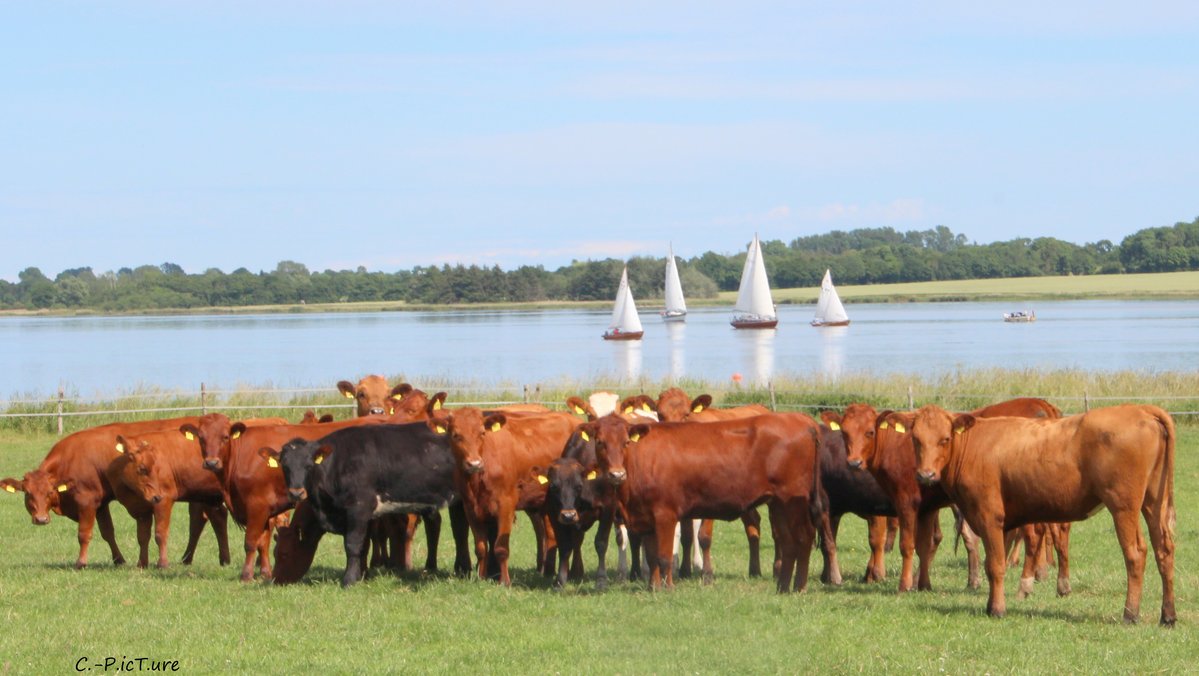Project description
The Angler cattle is an old North German cattle breed. In the Schleswig-Holstein region of Angeln, it has been bred according to plan since 1830. Like all old domestic breeds, the Angler cattle is an important genetic resource that should be preserved. The goal of the project is to identify and record the breed's characteristics in terms of climate efficiency and nutrient efficiency in order to formulate strategies that can increase the competitiveness of Angler cattle.
Tasks in the project include expanding the study of the beef genome, status-quo survey on the status of digitization and animal health, analyses of milk samples, and genome-wide association studies in the areas of animal welfare, animal health, climate efficiency and nutrient efficiency.

